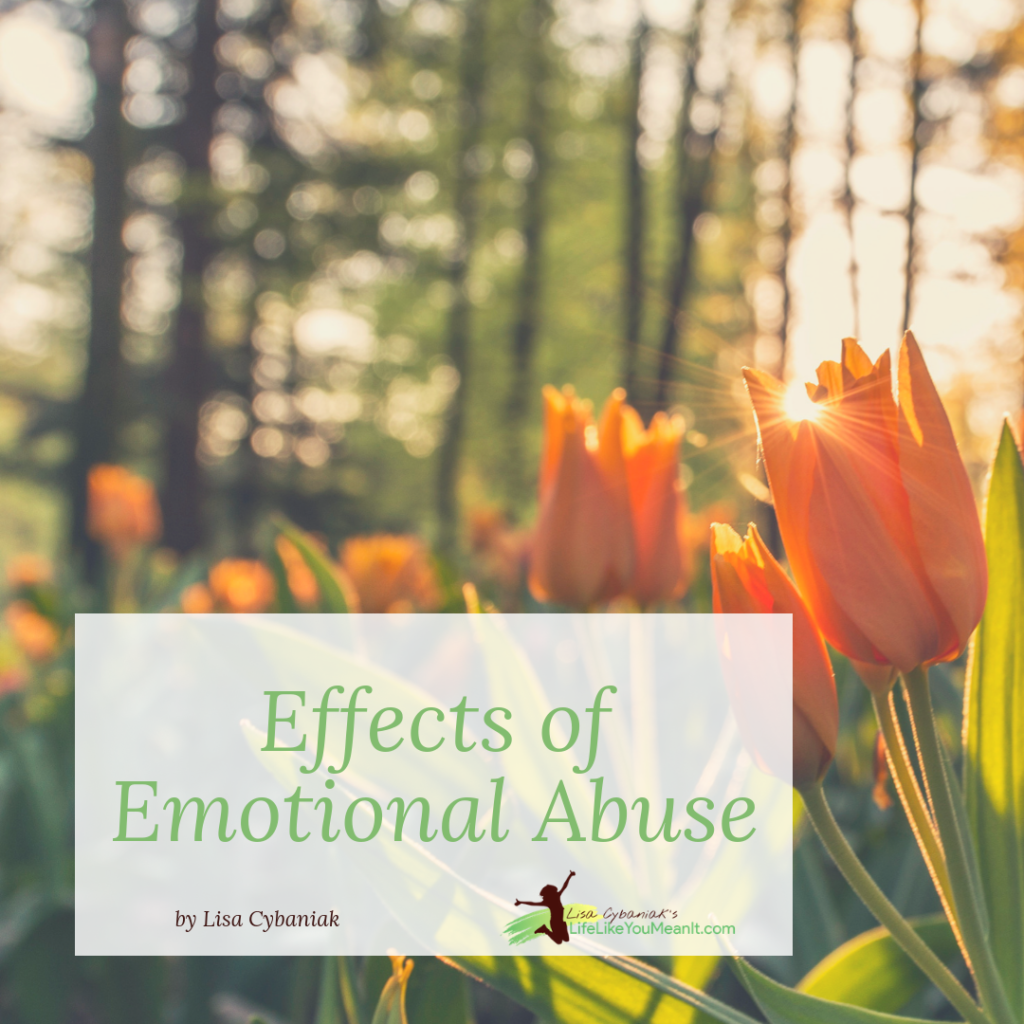
Emotional abuse has a lasting impact on survivors. While physical bruises heal and you can learn to express yourself without the use of violence, emotional abuse cuts you to your core. It is an attack on your very person; on who you are.
Experiencing emotional abuse is like having someone you admire greatly stand in front of the world and mock you, pointing out every single flaw. It leaves you feeling like the world would be a better place without you. It’s beyond painful.
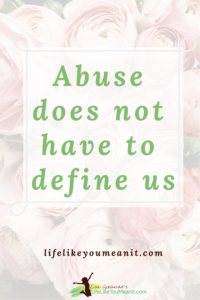
And when the abuser stops (say, because you leave the abusive environment), you pick up right where they left off. That’s right, the survivor continues to victimise themselves every single day by replaying those words, and reliving that feeling.
That’s in normal every day circumstances. Put that person on a date, or having to apply for a promotion and you can count on them amplifying that mantra until it’s so loud, they can’t think of anything else.
When is it emotional abuse?
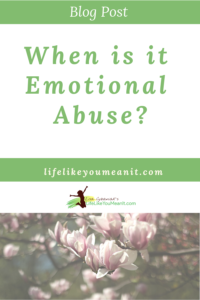
Of course, there are lots of times when the actions of someone else invoke feelings of unworthiness, like when a relationship breaks down. Just because those feelings can be intensely negative, doesn’t mean the ex was (or is) being emotionally abusive. Hurt feelings is one thing, but manipulation for the sake of gaining control, is another.
According to Psychology Today, emotional abuse is very similar to physical abuse in that it stems from an attempt to control another person. Of course, an emotional abuser does not hit or use other forms of physical harm, but uses emotions as their weapon.
What is emotional abuse?
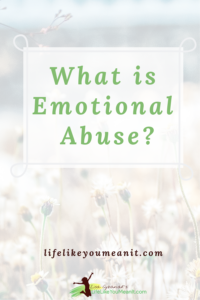
There are numerous forms of emotional abuse. For example, a parent who constantly criticises their child, putting them down hoping they will make different choices as a result. This is a classic manipulation technique used to attempt to control their child.
Other forms include shaming through the use of hostile sarcasm, full on verbal assault, belittling language, and name calling. This is a common way for the abuser to make themselves feel better. Unfortunately, it is at the expense of the victim.
Bullying is a common example of this, but many relationships (of various types) will also see this type of emotional abuse. For example, one partner constantly belittling the other.
There are other ways emotional abusers will manipulate victims in order to gain control. A classic example is to threaten to give, or actually give, punishments. In relationships, this can typically be seen by the abuser withholding affection unless and until they get their way.
Who causes emotional abuse?
Literally, anyone who manipulates emotions, using them to gain control in various ways, is an emotional abuser. Many people have been victims of emotional abuse through bullying or parental neglect, for example. While others are subjected to emotional abuse by their caregivers or partners.
Personal Example *Potential Trigger Warning*

In my case, I was told I was stupid, ugly, worthless and useless every day for 10 years of my life, from aged two until twelve when I was removed from my abuser. Experiencing these words, and the feelings they invoked had a devastating impact on my self-image and self-worth.
It caused me to fully believe those words to be my truth. I played them on repeat in my head every single day as my own personal mantra.
Although I also survived physical and sexual abuse at the hands of the same abuser during those years, this negative mental mantra meant the emotional abuse took the heftiest toll. It permeated every facet of my being, having a far greater impact on my well-being than both other forms of abuse combined.
Yet, when others learn of my abusive childhood, they instinctively assume the physical and sexual abuses would be far more traumatic. Not to down-play the effects of being abused in those ways, but the feeling of unworthiness and the belief that I lacked value – all because of those words spoken to me all those years – have shaped every decision I have made since. The struggle is real.
What are the symptoms of emotional abuse?
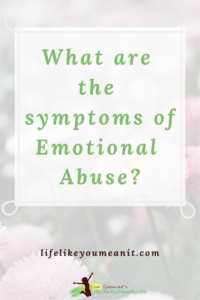
Emotional abuse causes a low self-esteem and confidence, as well as a lack of self-worth.
These issues with self-image mean that emotional abuse can lead to depression, anger, social anxiety, and even physical symptoms.
Just as important, truly believing you are unworthy, not good enough, stupid, and generally undeserving of anything better, has lasting effects. Your daily choices are influenced heavily by your beliefs in yourself. So, if your mantra is about a lack of self-worth and value, you will see ‘evidence’ for this everywhere. You will also reflect this deep belief in every choice you make.
This explains the pattern in bad choices in partners, for example. Or why you are stagnant in your career. You don’t believe you deserve better so you are not seeking better, no matter how many times you say otherwise.
I go into more detail in my video – watch it here:
How to overcome the effects of emotional abuse
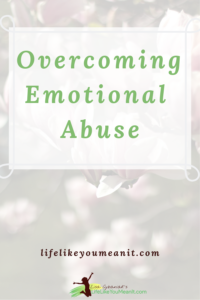
The healing that needs to be faced with emotional abuse survivors runs deep. Very deep. But it is possible.
Step 1
The first step is to acknowledge the beliefs that you have because of your abuse. Until you recognise what your beliefs even are, you will not understand the need to address them. As the saying goes, you can’t fix what you don’t know is broken!
Step 2
Next, you need to challenge each belief and find the real evidence to support or reject it. You think you’ve seen evidence along the way, but you haven’t. Instead, you’ve actually seen what you wanted to see. Now you need to actually look at each belief to uncover whether or not they are actually true.
For example, I couldn’t find any real evidence that I was actually stupid. I may have made mistakes, but I am (and always have been) a smart woman!
Step 3
In the process of realising you cannot find that evidence, you begin step three: rewriting your script. This involves discovering who you truly are, rather than relying on the words and actions of someone else. For example, once I realised there was no real evidence that I was stupid, I choose to see the evidence that was right in front of me all along – my intelligence.
There is light at the end of the tunnel
With the right tools, survivors of emotional abuse can climb out of the darkness, challenge their beliefs gained because of the abuse, and rewrite the script. No one else can do the hard work for you. This is a path you have to take, putting one step in front of the other. But you don’t have to travel the path alone!
Book a free 30-minute call with me, a fellow survivor, and learn how NLP coaching will empower you to build the life you truly deserve.
Here’s a video explaining how you can use NLP to understand what makes you unique, why you react the way you do, and how you can alter the way you experience your world:

Lisa Cybaniak is a Motivational Speaker and Success Coach who empowers women to build a life of value after abuse. To see how Lisa can help you process your unique journey and transform your life to one of meaning, love and ultimate happiness, visit her website. You deserve it!
New here? I write about overcoming child abuse, impostor syndrome and self-limiting beliefs. Here are some more blog posts that may help you overcome your past to build the life you deserve:
Why You Keep Attracting the Wrong Partner
Yoga: Connecting Mind & Body after Abuse
12 Positive Intentions to become a Survivor
Forget Failure, What if you Succeed?
Change Your Thoughts, Change Your Life in 4 Steps
Understanding the Mind of an Abuse Survivor
If you love Pinterest as much as I do, I’d love for you to Pin and share any of the images in this post, as well as these below!
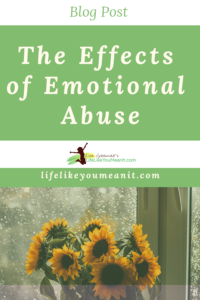
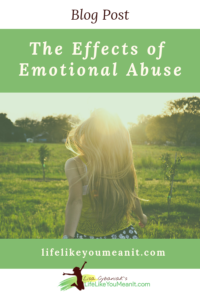
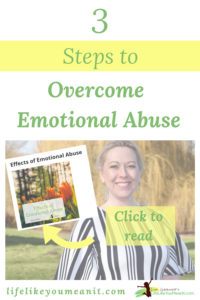
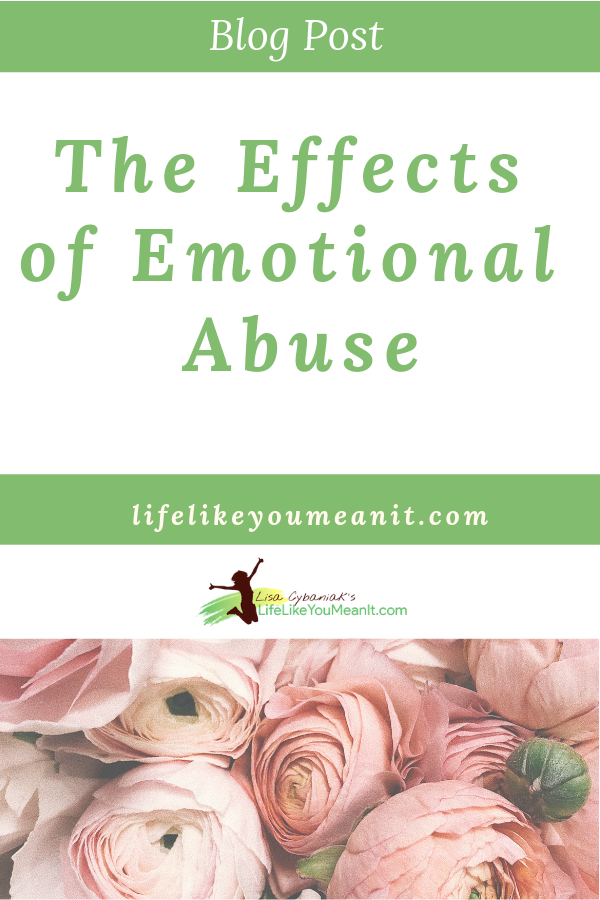
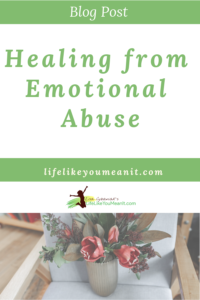
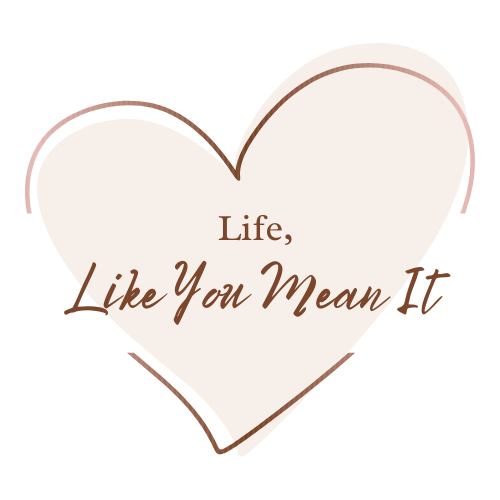

This article touched on so many important points. As a Psychology major and prior behavioral therapist with emotionally abused children, this hit so many points that are necessary for the abuse to know. Thank you so much for sharing it
Thank you so much for your kind words. I am so glad this resonates with you. Please feel free to share it with anyone you feel would benefit. My mission is the shed the stigma of being abused. Every little bit helps. Thank you!
Wow… Live your blog. I too have Bern through emotional abuse for approximately 12 years until I ran off from my marriage. Reading and reading blogs like this and writing my hurt through poetry have helped me tremendously to regain and strengthen who I am. Thank you
I am so glad to hear you broke free and that my blog is having a positive impact!